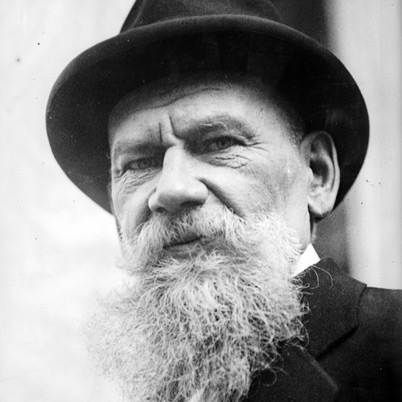The tyranny of theory
In a passage replete with quotable sentences from the linked article: “Levin at last realizes that if one lives rightly moment to moment, one can sense life’s meaningfulness, but one will still not be able to express it.” From a fantastic essay in The New Criterion about how science has narrowed and blinded us to its own limits, on the path toward wisdom. One can substitute the word “literature” with the word “art” at the end of the second paragraph and do no harm to the meaning of the paragraph:
Tolstoy in particular shaped Wittgenstein’s thought. As a soldier in the Austrian army, Wittgenstein carried copies of Tolstoy’s stories and Gospel in Brief everywhere. His friends jokingly referred to him as “the man with the Gospels.” The end of the Tractatus makes sense the moment one recognizes it as a loose paraphrase of Levin’s meditations in Part VIII of Anna Karenina.
For Wittgenstein, logic and science are indeed powerless to address questions of life’s meaning. “We feel that even if all possible scientific questions be answered, the problems of life have still not been touched at all,” Wittgenstein explains. But that does not mean these problems do not matter. It means that they must be addressed otherwise—for example, by literature.
Like Levin, Wittgenstein reasons that “the sense of life” cannot be a fact in the world, but must lie outside it. It cannot belong to the chain of cause and effect, or anything connected with natural laws, because it must illumine life as a whole. Or as Levin comes to understand: “If goodness has causes, it is not goodness; if it has effects, a reward, it is not goodness either. So goodness lies outside the chain of cause and effect.”
Levin at last realizes that if one lives rightly moment to moment, one can sense life’s meaningfulness, but one will still not be able to express it. What changes for him is not some fact in the world, but the world itself, which, as Wittgenstein paraphrases the point, “must wax and wane as a whole.” Ultimate questions are not answered, but they vanish in the face of meaningfulness and goodness directly experienced. Wittgenstein at his most Tolstoyan explains: “The solution of the problem of life is seen in the vanishing of this problem. (Is not this the reason why men to whom after long doubting the sense of life became clear, could not then say wherein this sense consisted?).” Russell notwithstanding, the genuinely inexpressible is indeed real. We come to know it not by logical deduction but because “it makes itself manifest. That is the mystical.”
When Levin comes to this realization, he understands that meaningfulness has always been there right before his eyes, hidden in plain view. Cloaked in its ordinariness, it is a daily miracle. “And I watched for [material] miracles, complained that I did not see a miracle that would convince me,” Levin thinks. “And here is the miracle, the sole miracle possible, continually existing, surrounding me on all sides, and I never noticed it!”

Comments are currently closed.